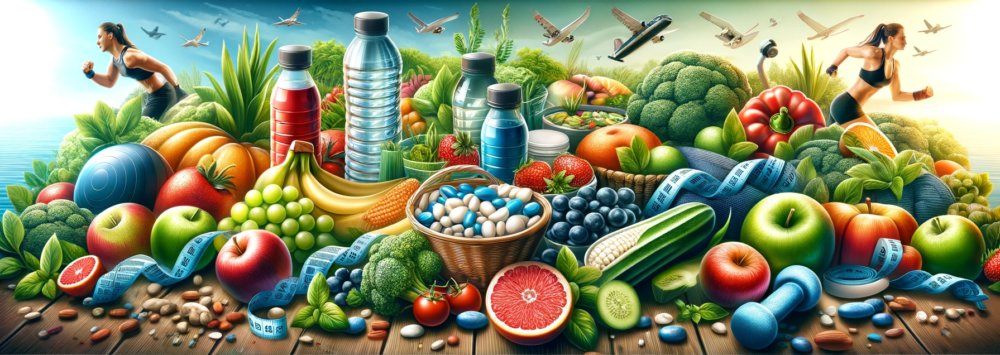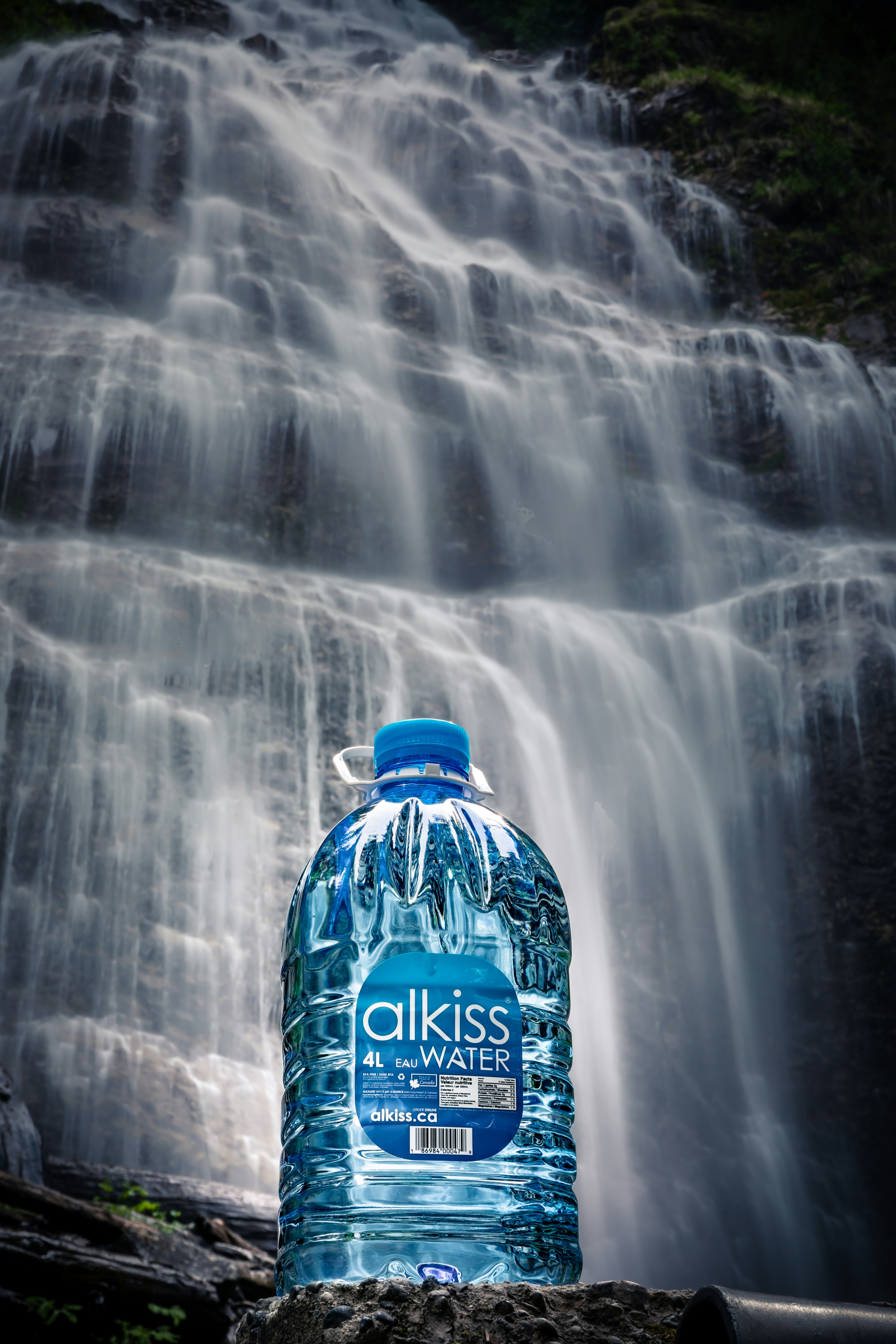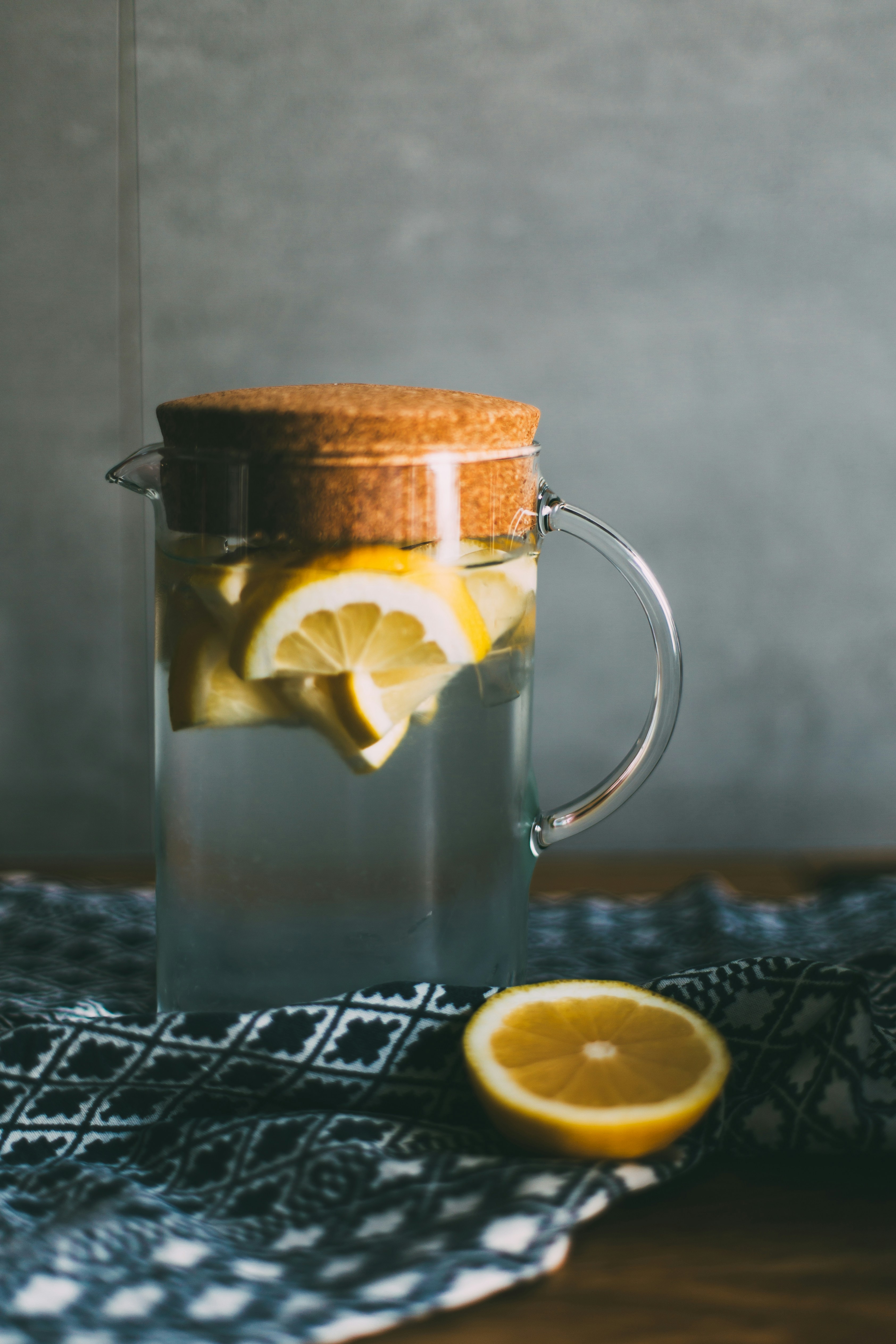Want to shed some pounds? Increasing your water intake can be a simple yet effective way to boost your weight loss journey. In this article, we’ll explore various strategies and tips to help you increase your daily water consumption. From adding flavor to your water to creating a hydration schedule, we’ll cover all the bases to ensure you’re well on your way to reaching your weight loss goals. So, grab a glass of H2O, sit back, and get ready to discover how you can easily up your water game for a healthier and happier you.
Importance of Water Intake for Weight Loss
The role of water in weight loss
When it comes to weight loss, water is an absolute game-changer. Not only is it calorie-free, but it also plays a crucial role in various bodily functions that directly impact your journey towards shedding those extra pounds. Water aids in digestion, helps maintain proper metabolism, and promotes the elimination of waste and toxins from your body. Moreover, staying hydrated can help you feel fuller for longer, reducing the chances of overeating or snacking on unhealthy foods. Therefore, ensuring an adequate water intake is essential for supporting and enhancing your weight loss efforts.
Benefits of increasing water intake for weight loss
Increasing your water intake can bring about numerous benefits that directly contribute to your weight loss journey. Firstly, drinking more water can help boost your metabolism by up to 30%, which means your body can burn calories more efficiently. Additionally, water acts as a natural appetite suppressant, making you feel fuller and reducing your food cravings. This can be especially beneficial when trying to resist unhealthy snacks or portion control. Furthermore, staying hydrated can improve your body’s ability to break down fat and convert it into energy. By keeping your cells properly hydrated, water helps optimize your body’s fat-burning mechanisms. Lastly, replacing sugary drinks with water can significantly reduce your overall calorie intake, leading to weight loss over time. By choosing water over high-calorie beverages, you can not only quench your thirst but also make a positive impact on your weight loss goals.
How Much Water Should I Drink?
Recommended daily water intake for weight loss
Determining the right amount of water to drink can vary depending on various factors, such as your weight, activity level, and overall health. As a general guideline, experts recommend aiming for at least 8 cups (64 ounces) of water per day, which is equivalent to about 2 liters. However, if you are actively trying to lose weight, increasing your water intake to up to 3-4 liters per day may be more beneficial. This higher level of hydration can help boost your metabolism and support your body’s fat-burning processes. It is important to note that individual water needs can vary, so it’s best to experiment and listen to your body to find the right balance.
Factors that may affect water intake
While the recommended daily water intake provides a good starting point, it’s important to consider external factors that may influence your hydration needs. Factors such as climate, physical activity level, and overall health can impact the amount of water you should be drinking. For instance, if you live in a hot and humid climate or engage in intense physical activity, you may need to increase your water intake to compensate for the excessive fluid loss through sweating. Similarly, certain medical conditions or medications can affect your body’s water balance, requiring you to adjust your water intake accordingly. When determining your ideal water intake, it’s crucial to take these factors into account and make adjustments as necessary.
Tips to Increase Water Intake
Carry a water bottle with you at all times
One of the simplest and most effective ways to increase your water intake is to have a water bottle with you at all times. By having water readily available, you’ll be more likely to sip on it throughout the day. Invest in a reusable water bottle that you can carry with you wherever you go, whether it’s to work, the gym, or running errands. This way, you can stay hydrated without having to rely on purchasing beverages or using single-use plastic bottles.
Set reminders to drink water throughout the day
In the busyness of daily life, it’s easy to forget to drink enough water. To counter this, consider setting reminders on your phone or using a water tracking app to remind you to hydrate regularly. You can schedule alerts at specific intervals, such as every hour or every 30 minutes, to ensure you’re consistently drinking water throughout the day. These gentle reminders can be a helpful nudge to prioritize your hydration and make it a habit.
Flavor water with fruits or herbs
If you find plain water unappealing or boring, try adding natural flavors to enhance the taste. You can infuse your water with slices of fruits like lemon, lime, or cucumber for a refreshing twist. Alternatively, adding a few sprigs of herbs like mint or basil can add a subtle and pleasant flavor. Experiment with different combinations to find the ones you enjoy the most. Not only will flavored water make it more enjoyable to drink, but it can also provide additional health benefits from the nutrients and antioxidants present in the fruits or herbs.
Drink water before meals
Drinking a glass of water before each meal can help you feel fuller and more satisfied, leading to reduced calorie intake. Research has shown that individuals who consumed water before meals ate fewer calories overall compared to those who didn’t. Additionally, drinking water before a meal can assist with digestion and prevent overeating. Aim to drink a glass of water about 30 minutes before your main meals to experience the benefits of this simple yet effective strategy.
Replace sugary drinks with water
Sugary drinks like soda, juice, and energy drinks not only contribute to weight gain but also provide empty calories and little nutritional value. By replacing these sugary beverages with water, you can significantly reduce your daily calorie intake. Water is calorie-free, hydrating, and can satisfy your thirst without adding unnecessary sugars and artificial additives to your diet. Make a conscious effort to choose water over sugary drinks whenever possible, and you’ll be making a positive impact on your weight loss journey.
Consume water-rich foods
Hydration doesn’t only come from beverages; you can also increase your water intake by consuming water-rich foods. Fruits and vegetables with high water content, such as watermelon, cucumbers, oranges, and strawberries, can contribute to your overall hydration. These foods not only hydrate your body but also provide essential vitamins, minerals, and dietary fiber. By incorporating a variety of water-rich foods into your meals and snacks, you can boost your water intake while enjoying the additional nutritional benefits they offer.
Use a water tracking app
If you prefer a more structured approach to tracking your water intake, consider using a water tracking app. There are various apps available that allow you to set daily water goals, track your progress, and receive reminders to drink water. Many of these apps also provide personalized recommendations based on your height, weight, and activity level. By using a water tracking app, you can gain valuable insights into your hydration habits and stay accountable to your goals.
Create a water drinking schedule
Establishing a water drinking schedule can help ensure that you distribute your water intake evenly throughout the day. Divide your daily water intake goal by the number of hours you’re awake, and create a schedule that outlines how much water you should drink during specific time frames. For example, if you aim to drink 2 liters of water per day and you’re awake for 16 hours, you can schedule to drink 125 milliliters (about half a cup) every hour. Having a structured plan can make it easier to stay on track with your water intake and prevent you from forgetting or overhydrating.
Other Hydration Sources
Drinking herbal tea
In addition to water, herbal teas can be a great alternative to increase your overall hydration. Herbal teas, such as chamomile, peppermint, or green tea, not only provide hydration but also offer various health benefits. These teas can help relax your body, boost your metabolism, and even aid in digestion. Just make sure to opt for uncaffeinated versions, as caffeinated tea can have a diuretic effect and might increase your fluid loss.
Consuming watery fruits and vegetables
Incorporating watery fruits and vegetables into your daily diet can provide you with an additional source of hydration. Fruits like watermelon, grapes, and citrus fruits are not only hydrating but also packed with essential vitamins and minerals. Vegetables such as cucumbers, celery, and lettuce are also excellent choices due to their high water content. By including these hydrating foods in your meals and snacks, you can supplement your water intake and support your weight loss efforts.
Potential Challenges and Solutions
Getting bored with plain water
Drinking plain water all the time can get monotonous, and you may find it challenging to stay motivated to drink enough. To overcome this, you can experiment with flavored water by adding fruits or herbs, as mentioned earlier. Additionally, you can try sparkling water or infused water with bubbles for a refreshing change. There are numerous flavored water options available in stores, but be cautious of added sugars and artificial ingredients. Another solution is to enjoy herbal teas or fruit-infused tea for a different taste and added hydration.
Overhydration concerns
While staying hydrated is important, it’s equally crucial not to overhydrate. Drinking excessive amounts of water can lead to a condition called hyponatremia, which occurs when the balance of electrolytes in your body is diluted. This can be dangerous, especially if you’re engaging in intense physical activity. To avoid overhydration, it’s essential to listen to your body’s signals. Pay attention to feelings of fullness and the color of your urine. If you find yourself constantly running to the bathroom or your urine is excessively clear, you may be drinking too much water. Moderation is key, and consulting with a healthcare professional can provide personalized advice based on your specific needs.
Morning sickness during pregnancy
Pregnancy is a unique period where maintaining hydration is crucial for both the mother and the baby. However, morning sickness can make it challenging to keep fluids down. If you’re experiencing morning sickness, try sipping on small amounts of water throughout the day. You can also try avoiding large meals and opt for smaller, more frequent meals to reduce the chances of triggering nausea. Additionally, ginger tea or lemon-infused water may help alleviate nausea symptoms and make it easier to stay hydrated. Consult with your healthcare provider for personalized advice and strategies to address morning sickness and hydration during pregnancy.
Urinary incontinence issues
For individuals experiencing urinary incontinence, the thought of increasing water intake may seem counterintuitive. However, staying hydrated is crucial for overall health, and avoiding water can exacerbate the problem. There are strategies to manage urinary incontinence while still maintaining proper hydration. Pelvic floor exercises, such as Kegels, can help strengthen the muscles involved in urinary control. Reducing caffeine and carbonated beverages can also help, as they can irritate the bladder. It’s important to work with a healthcare professional to address urinary incontinence concerns and develop a plan that supports your hydration needs.
Find alternatives to plain water
If you find it challenging to meet your water intake goals solely through plain water, you can explore alternative options that contribute to your hydration while adding variety to your beverages. Infused water, herbal teas, sparkling water, and low-calorie flavored drinks can all be consumed in moderation to supplement your water intake. However, it’s essential to read the labels and choose options that are free from added sugars, artificial sweeteners, and excessive calories. By having a range of hydration sources, you can maintain interest and motivation towards meeting your overall water intake goals.
Seek advice from a healthcare professional
If you have specific health concerns or are unsure about how much water you should be drinking, it’s always a good idea to consult with a healthcare professional. They can provide personalized advice based on your unique circumstances, taking into account factors such as medical conditions, medications, and individual hydration needs. A healthcare professional can guide you on the appropriate water intake for your weight loss goals while considering any potential challenges or limitations you may face.
Water Intake and Exercise
Pre-workout hydration
Staying properly hydrated is essential before engaging in any physical activity, including workouts. Adequate pre-workout hydration helps optimize performance, energy levels, and overall exercise experience. It’s recommended to consume about 16-20 ounces (475-590 milliliters) of water 2-3 hours before your workout. This allows enough time for your body to absorb the fluids and ensures that you start your exercise session in a hydrated state. Additionally, sipping on water in the hour leading up to your workout can help maintain hydration levels and prepare your body for the upcoming physical demands.
Hydration during exercise
During exercise, especially intense or prolonged sessions, your body loses fluids through sweat. It’s crucial to replenish these fluids to prevent dehydration and maintain performance. The general guideline for hydration during exercise is to consume about 7-10 ounces (210-295 milliliters) of water every 10-20 minutes. However, individual hydration needs can vary depending on factors such as intensity, duration, and environmental conditions. If you’re engaging in highly intense or endurance-based activities, consider using a sports drink that contains electrolytes to replenish the important minerals lost through sweat. Electrolytes can help maintain proper muscle function and prevent cramps. Experiment and adjust your hydration strategy based on your body’s cues and the specific demands of your exercise routine.
Post-workout hydration
Proper hydration after exercise is crucial for recovery and replenishing the fluids lost during your workout. Aim to drink about 16-24 ounces (475-710 milliliters) of water within two hours after your exercise session. This helps restore hydration levels, supports muscle repair, and aids in the removal of waste products from your body. If your workout was particularly intense or lasted for an extended period, consider incorporating a sports drink or a protein shake that includes fluids and essential nutrients to optimize recovery.
Water Intake Timing
Drinking water upon waking up
Starting your day with a glass of water can kickstart your hydration and provide various health benefits. After hours of sleep, your body is in a mildly dehydrated state. Drinking water upon waking up can swiftly rehydrate your body, wake up your digestive system, and create a refreshing start to your day. Some people prefer drinking warm water with lemon to add a vitamin C boost and aid digestion. However, cold water can be equally effective, and the choice ultimately depends on personal preference.
Hydration during meals and snacks
Incorporating water intake during meals and snacks can support digestion, prevent overeating, and contribute to overall hydration. Sipping water throughout your meals helps break down food and aids in the absorption of nutrients. However, avoid excessive water consumption during meals, as it can dilute stomach acid and hinder the digestive process. Taking small sips between bites and listening to your body’s signals of hunger and fullness can help you strike a balance. Similarly, having a glass of water with your snacks can help satisfy thirst and prevent mindless snacking.
Drinking water before bed
Hydration even before bedtime is essential for maintaining your body’s fluid balance and to avoid waking up feeling thirsty. While it’s important to drink water before bed, it’s equally crucial to find the right balance to prevent disruptions to your sleep due to frequent bathroom trips. Consuming a moderate amount of water about an hour or two before bedtime can give your body enough time to process and minimize the chances of needing to urinate frequently during the night. Monitoring your fluid intake and adjusting the timing based on individual needs can help ensure a restful night’s sleep while staying hydrated.
Signs of Dehydration
Dark or infrequent urine
One of the primary indicators of dehydration is the color and frequency of your urine. When adequately hydrated, urine should be a pale yellow color. Dark yellow or amber-colored urine is a sign of concentrated urine and may indicate insufficient hydration. Additionally, infrequent urination or urine that appears small in volume can suggest dehydration. Monitoring your urine color and frequency can serve as valuable cues to ensure you’re maintaining proper hydration levels.
Dry skin and lips
Dehydration can manifest externally through dry skin and lips. When your body lacks sufficient fluids, it prioritizes other vital bodily functions, leaving skin and lips without adequate moisture. If you notice your skin feeling dry, tight, or lacking elasticity, it may be a sign that you need to drink more water. Similarly, chapped lips or a persistent feeling of dryness can be indicators of dehydration. By paying attention to these physical signs, you can address dehydration promptly by increasing your water intake.
Fatigue and dizziness
Feeling fatigued or experiencing frequent bouts of dizziness can be signs of dehydration. When your body is dehydrated, it struggles to carry out basic processes and deliver sufficient oxygen to your cells. As a result, you may feel sluggish, tired, or experience difficulty concentrating. Additionally, dehydration can cause a drop in blood pressure, leading to dizziness or lightheadedness. If you notice these symptoms, especially during physical activity or exposure to hot temperatures, it’s important to prioritize hydration and replenish your fluids.
Headaches
Dehydration is a common trigger for headaches and migraines. When your body lacks adequate hydration, it can affect blood flow and oxygen delivery to your brain, leading to headaches or intensifying existing ones. If you frequently experience headaches, it’s worth considering if dehydration may be a contributing factor. By increasing your water intake, you may find relief from headaches and overall improved well-being.
Muscle cramps
Dehydration can cause imbalances in electrolyte levels, particularly sodium and potassium, which are vital for proper muscle function. When these electrolytes are out of balance, you may experience muscle cramps or spasms. If you find yourself regularly experiencing muscle cramps, especially during or after physical activity, it’s important to address your hydration. Consuming water and incorporating electrolyte-rich foods or drinks can help restore balance and alleviate muscle discomfort.

Conclusion
Hydration plays a vital role in weight loss, and increasing your water intake can significantly impact your journey towards a healthier and slimmer you. By understanding the role of water in weight loss and implementing the tips mentioned in this article, you can enhance your weight loss efforts and overall well-being. Remember to prioritize an adequate water intake, especially when exercising, and pay attention to signs of dehydration to ensure you’re meeting your hydration needs. Incorporate these tips into your daily routine, personalize them to fit your lifestyle, and watch as increased water intake becomes a positive habit that supports your desire to lose weight. Cheers to a hydrated and healthier you!





